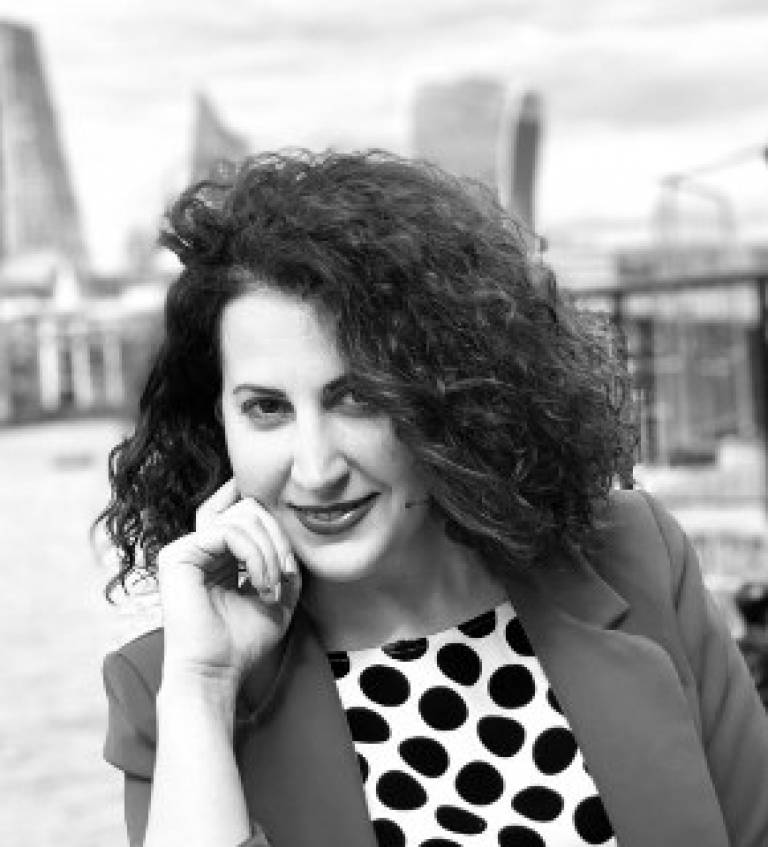Spotlight On..... Dr Dimitra Gkitsa
5 November 2021
Spotlight on Dr Dimitra Gkitsa, Alexander Nash Fellow

What brought to you work at SSEES?
SSEES is a truly interdisciplinary academic environment, offering a unique in its kind Fellowship in Albanian Studies. My research explores aspects of contemporary visual cultures and art practices in Albania and the broader region of the Balkans. SSEES offers me the opportunity to interact with colleagues across diverse disciplines, methodologies, and discourses. Situating my work in critical dialogue with such interdisciplinary perspectives, which are necessary in order to untangle the “messy” history of the region, is particularly inspiring at this stage of my research.
If you weren’t working in academia, what would be your dream job?
Probably I would still be doing the work that I do in academia but in different context and for different purposes; things such as writing, researching, doing projects that can create platform and space for people to come together, think together, and learn together.
Can you tell us a bit about your research/teaching and why it’s important to study this?
My current research seeks to understand the legacy of post-industrialism in Albania, situating this in the context of the broader Southeast Europe. Methodologically, my approach involves working with oral personal testimonies of local communities as well as examining the visual and material cultures of industrial decay. An important element of this research is to shed light to a currently under-represented modern heritage of the socialist past, which can be an entry point to examine more complicated issues related to collective memory, transition from socialism to capitalism, the transformation of labour, and ways in which we can approach cultural heritage of the socialist past in the present.
Outside of work, how do you unwind?
I like discovering second-hand bookshops and collecting rare editions, going on hikes and cycling trips, reading novels, visiting contemporary art exhibitions, and spending time with family and friends.
If you could recommend only one book, what would it be?
Olga Tokarczuk’s “Flights”, a philosophical meditation on the idea of travel and wandering. Reading it during the pandemic, a time when travel was practically impossible, it made me reconsider migration, bodies moving through time and space, movements across actual and imaginary borders. It made me think how sometimes moving away or towards something or somewhere is in fact the only possible way to sustain life.
What is your biggest professional achievement to date?
Being the first in my family to pursue academic studies, I consider completing a PhD to be my biggest professional (and personal) achievement to date. I am hoping that through my future work I will be able to facilitate and support other people from disadvantaged backgrounds to enter and navigate Higher Education. It is currently more important than ever to bring into our universities these diverse backgrounds, stories and experiences, creating space for visibility and representation.
 Close
Close

